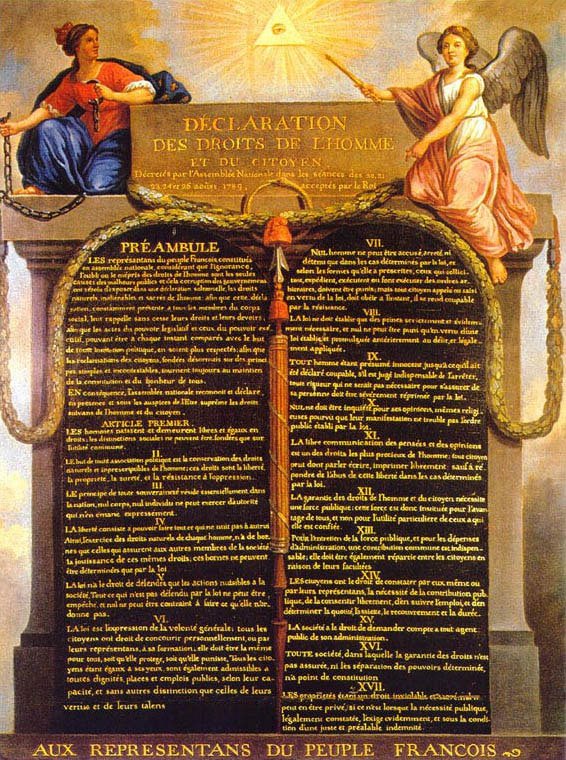Declaration of the Rights of Man and of the Citizen (1789)

In 1789 the people of France brought about the abolishment of the absolute monarchy and set the stage for the establishment of the first French Republic. Just six weeks after the storming of the Bastille, and barely three weeks after the abolition of feudalism, the Declaration of the Rights of Man and of the Citizen (French: La Déclaration des Droits de l’Homme et du Citoyen) was adopted by the National Constituent Assembly as the first step toward writing a constitution for the Republic of France.The Declaration proclaims that all citizens are to be guaranteed the rights of "liberty, property, security, and resistance to oppression.” It argues that the need for law derives from the fact that "...the exercise of the natural rights of each man has only those borders which assure other members of the society the enjoyment of these same rights.” Thus, the Declaration sees law as an "expression of the general will," intended to promote this equality of rights and to forbid "only actions harmful to the society.”